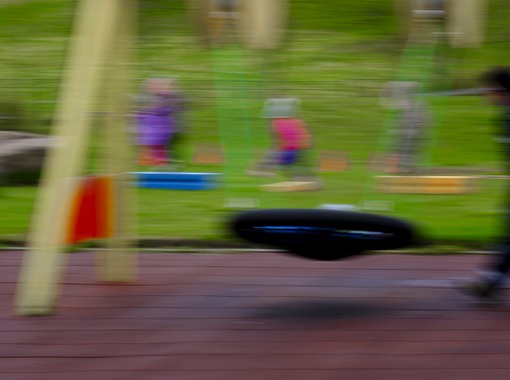Many people who have been involved in caring for young children will know the challenge of getting them to try and enjoy new foods. Grimaces, squirming and loud objections are a fact of life for a lot of parents trying to introduce their children to new foods. Often they lose heart and give up. At the University of Iceland, a current study is aiming to prevent or reduce food sensitivity in preschool children, as well as providing parents with tools to improve their home food environment. The women behind the research are Berglind Lilja Guðlaugsdóttir, PhD student in health promotion at the School of Education, her supervisor Professor Anna Sigríður Ólafsdóttir, and Sigrún Þorsteinsdóttir, recent doctoral graduate from UI.
"Food sensitivity in children generally peaks around the age of 2-6. During this period it is common for children to lack variety in their diets, particularly with fruit and vegetables. Food sensitivity can also cause stress and anxiety for parents and children around meal times and parents often don't have good strategies for handling the situation," says Berglind, explaining that the project is based on the taste bud training method developed by the team over the last few years.
The early years have a huge impact on future health
"Taste bud training is a method that involves systematically training children to experience food with all their senses. There is a lot of evidence suggesting that this approach can reduce food sensitivity," says Berglind, here referring to the doctoral research of Sigrún Þorsteinsdóttir, which involved adapting taste bud training to suit the families of compulsory school children in Iceland with and without neurodevelopmental disorders. "Sigrún's research yielded very positive results, reducing food sensitivity, increasing dietary diversity and improving challenging behaviour at meal times. Findings suggested that children enjoyed eating more after the intervention, which is an important part of promoting a healthy relationship with food."
These findings inspired Berglind to think about whether it would be possible to adapt the approach for preschool children. "The early years of a child's life have a huge impact on future health and development and a varied and healthy diet is absolutely key. So this is a very important age. There is also a lack of intervention research in this area, making it an exciting topic in an international context," she adds.
"Research like this creates new knowledge and the resources developed can benefit many people. This is the first study of its kind, in the whole world, not just in Iceland. This research could provide valuable support for parents who lack strategies to tackle food sensitivity in their child, thereby reducing the risk of the problem getting worse," says Berglind.

Close collaboration with preschools across Iceland
The project will be conducted in close collaboration with preschools, both in the capital area and in other regions, with the aim of using taste bud training to prevent or reduce food sensitivity in children as young as 1, or before the age at which food sensitivity generally peaks. "Taste bud training will be part of the daily routine in the preschools, supporting a healthy environment. Families will also be asked to participate, since they play an important role in changing children's food behaviour. Children spend the majority of their waking hours at preschool and do much of their eating there. We have therefore focused on adapting the taste bud training methods to the preschool environment. Methods and educational material will be developed through co-creation with preschool staff, ensuring that they are optimally suited to that environment. Preschool staff will also be trained to use these methods," explains Berglind. The team also plans to work with healthcare clinics to explore whether taste bud training could affect children's long-term growth.
Berglind has BS and MS degrees in nutrition and her main research interests are in this field. "Nutrition, food sensitivity and improved dietary habits and family food environments are the common themes of my research interests and this study will touch on all these areas. I am passionate about helping children and their families improve their dietary habits and food environments," adds Berglind.
First study of its kind in the world
The research is in the very early stages, meaning that no findings are yet available to share, but Berglind hopes that results will be as positive as they were for previous research on taste bud training, i.e. showing that these methods can reduce food sensitivity in preschool children, increase dietary diversity and have a positive influence on the food environment in homes and preschools.
Besides Berglind, Anna Sigríður and Sigrún, an experienced interdisciplinary team of researchers in Iceland and abroad will be involved with this ground breaking project. "Research like this creates new knowledge and the resources developed can benefit many people. This is the first study of its kind, in the whole world, not just in Iceland. This research could provide valuable support for parents who lack strategies to tackle food sensitivity in their child, thereby reducing the risk of the problem getting worse. If the project is successful and the methods prove effective, they could be developed still further and integrated into the preschool curriculum," says Berglind.




